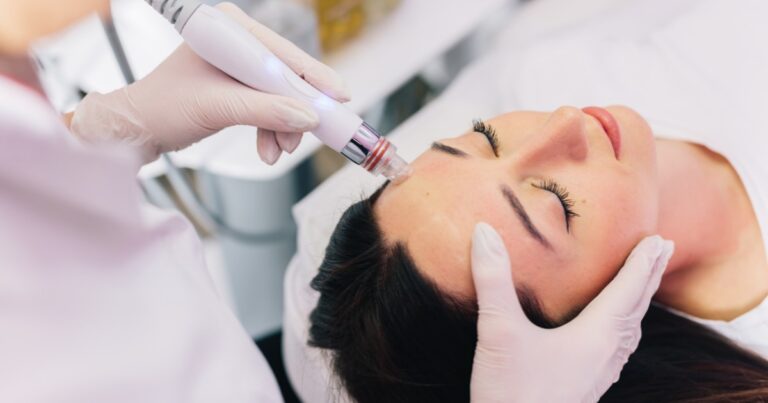Breast augmentation is a popular cosmetic procedure that many individuals consider to enhance their body image. However, not everyone is aware of the factors that determine eligibility for this surgery.
One crucial factor is the Body Mass Index (BMI). Understanding the role of BMI in breast augmentation eligibility can help potential candidates make informed decisions.
Understanding BMI and Its Importance in Plastic Surgery
What is BMI?
Body Mass Index (BMI) is a numerical value derived from an individual’s weight and height. It is a simple and widely used method to categorize individuals into different weight categories, such as underweight, normal weight, overweight, and obese. BMI is crucial in plastic surgery as it helps surgeons assess the overall health and suitability of a patient for surgery.
How BMI Affects Surgical Outcomes
BMI can significantly influence surgical outcomes. Patients with a high BMI may face increased risks during surgery, such as complications with anesthesia and wound healing. Conversely, a low BMI might affect the aesthetic results of the surgery, as there may be insufficient tissue to support the implants.
Book A Consultation With Dr Tarek Bayazid
Top-rated Plastic Surgeon For Breast Augmentation in Dubai
Installment Plan Available
BMI Guidelines for Breast Augmentation
Surgeons often follow specific BMI guidelines when evaluating candidates for breast augmentation. Typically, a BMI between 18.5 and 24.9 is considered optimal for surgery. This range indicates a healthy weight, minimizing surgical risks and promoting better recovery.
- BMI Categories:
- Underweight: BMI < 18.5
- Normal weight: BMI 18.5–24.9
- Overweight: BMI 25–29.9
- Obese: BMI ≥ 30
Why Weight Matters for Breast Implant Surgery
Surgical Risks Associated with High BMI
Individuals with a high BMI are at a greater risk of experiencing complications during and after surgery. These risks include increased bleeding, infection, and difficulties with anesthesia. High BMI can also lead to longer recovery times and less satisfactory aesthetic outcomes.
Impact of Low BMI on Implant Results
A low BMI can also pose challenges for breast augmentation. Patients with low body fat may not have enough tissue to cover the implants, leading to visible edges or rippling. This can affect the natural appearance of the breasts post-surgery.
Optimal BMI Range for Breast Augmentation
The optimal BMI range for breast augmentation is typically between 18.5 and 24.9. This range ensures that the patient is at a healthy weight, reducing the risk of complications and enhancing the likelihood of achieving desired results.
- Risks of High BMI:
- Increased bleeding
- Infection risk
- Anesthesia complications
- Challenges of Low BMI:
- Insufficient tissue coverage
- Visible implant edges
BMI and Breast Augmentation Safety Considerations
Anesthesia Risks Related to BMI
Anesthesia is a critical component of breast augmentation surgery, and BMI can influence its administration. Patients with a high BMI may require more anesthesia, increasing the risk of adverse reactions. Conversely, those with a low BMI may be more sensitive to anesthesia, necessitating careful monitoring.
Wound Healing and BMI
BMI can affect the body’s ability to heal after surgery. High BMI is associated with slower wound healing and a higher risk of infection. Maintaining a healthy BMI can promote faster recovery and reduce the likelihood of complications.
Post-Operative Complications Linked to Weight
Weight can impact post-operative recovery. Patients with a high BMI may experience more swelling and bruising, while those with a low BMI might face issues with implant visibility. Achieving a stable, healthy weight before surgery can mitigate these risks.
- Anesthesia Considerations:
- Higher doses for high BMI
- Sensitivity in low BMI
- Healing Challenges:
- Slower recovery in high BMI
- Implant visibility in low BMI
How BMI Influences Breast Implant Size and Placement
Choosing Implant Size Based on Body Proportions
Selecting the right implant size is crucial for achieving natural-looking results. Surgeons consider the patient’s BMI and body proportions to recommend an appropriate implant size that complements their physique.
Implant Placement Techniques for Different BMIs
The placement of breast implants can vary based on BMI. For patients with a higher BMI, submuscular placement may be preferred to provide additional support and a more natural appearance. In contrast, subglandular placement might be suitable for those with a lower BMI.
Achieving Natural-Looking Results Across BMI Ranges
Regardless of BMI, the goal of breast augmentation is to achieve natural-looking results. Surgeons tailor their approach to each patient’s unique body type, ensuring that the implants enhance their natural curves.
- Implant Size Considerations:
- Proportional to body size
- Enhances natural curves
- Placement Techniques:
- Submuscular for high BMI
- Subglandular for low BMI
Weight Fluctuations and Their Impact on Breast Augmentation Results
Effects of Weight Gain on Implants
Weight gain after breast augmentation can alter the appearance of the implants. Increased body fat may cause the breasts to enlarge, potentially affecting the symmetry and overall look of the implants.
Consequences of Significant Weight Loss Post-Surgery
Significant weight loss after surgery can lead to changes in breast shape and size. The skin may become loose, and the implants may appear more prominent, affecting the desired aesthetic outcome.
Maintaining Stable Weight for Optimal Long-Term Outcomes
To preserve the results of breast augmentation, maintaining a stable weight is essential. Fluctuations in weight can impact the appearance of the implants and the overall satisfaction with the surgery.
- Weight Gain Effects:
- Enlarged breast size
- Altered symmetry
- Weight Loss Consequences:
- Loose skin
- Prominent implants
BMI Considerations for Different Types of Breast Implants
Silicone vs. Saline Implants and BMI Factors
The choice between silicone and saline implants can be influenced by BMI. Silicone implants are often preferred for their natural feel, while saline implants may be suitable for those with a higher BMI due to their adjustability.
Gummy Bear Implants and Body Weight Considerations
Gummy bear implants, known for their stability and shape retention, can be a good option for patients across different BMI ranges. Their cohesive gel structure provides a natural look and feel, regardless of body weight.
Fat Transfer Breast Augmentation and BMI Requirements
Fat transfer breast augmentation involves using the patient’s fat to enhance breast size. This option may be ideal for those with a higher BMI, as it requires sufficient fat for transfer.
- Implant Types:
- Silicone for natural feel
- Saline for adjustability
- Gummy Bear Benefits:
- Shape retention
- Natural appearance
The Role of BMI in Breast Augmentation Eligibility Assessment
Pre-Surgical Evaluations and BMI Screening
Before undergoing breast augmentation, patients undergo a thorough evaluation, including BMI screening. This assessment helps determine their eligibility and identify any potential risks associated with their weight.
Alternative Options for Patients Outside the Ideal BMI Range
For patients who fall outside the ideal BMI range, alternative options may be considered. These can include weight management programs or different surgical techniques to achieve the desired results safely.
Personalized Treatment Plans Based on Individual BMI
Surgeons create personalized treatment plans tailored to each patient’s BMI and body type. This approach ensures that the surgery is safe and the results align with the patient’s expectations.
- Evaluation Process:
- Comprehensive assessment
- BMI screening
- Alternative Solutions:
- Weight management
- Customized techniques
Dr. Tarek’s Approach to BMI and Breast Augmentation
Customized Treatment Plans for Various BMI Ranges
Dr. Tarek emphasizes the importance of customized treatment plans for patients with different BMI ranges. By considering each patient’s unique needs, he ensures that the surgery is both safe and effective.
Patient Education on BMI’s Role in Surgical Success
Educating patients about the role of BMI in surgical success is a priority for Dr. Tarek. He provides comprehensive information to help patients understand how their weight can impact the outcomes of breast augmentation.
Ongoing Support for Weight Management Post-Surgery
Dr. Tarek offers ongoing support for patients to maintain a healthy weight after surgery. This support includes guidance on diet, exercise, and lifestyle changes to ensure long-term satisfaction with the results.
- Customized Plans:
- Tailored to BMI
- Safe and effective
- Educational Focus:
- Importance of BMI
- Impact on outcomes
Final Thoughts
Understanding the role of BMI in breast augmentation eligibility is crucial for anyone considering this procedure. By maintaining a healthy weight and working closely with a qualified surgeon, patients can achieve their desired results safely and effectively.
FAQs
Does BMI affect breast augmentation recovery?
Yes, BMI can affect breast augmentation recovery. Patients with a high BMI may experience longer recovery times and an increased risk of complications. Maintaining a healthy BMI can promote faster healing and better outcomes.
Can you get breast implants if you’re overweight?
Yes, you can get breast implants if you’re overweight, but it may come with increased risks. Surgeons often recommend weight management strategies to reduce these risks and improve surgical results.
What is the ideal BMI for breast augmentation?
The ideal BMI for breast augmentation is typically between 18.5 and 24.9. This range indicates a healthy weight, minimizing surgical risks and enhancing the likelihood of achieving desired results.








